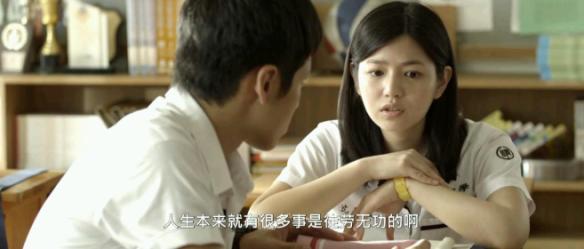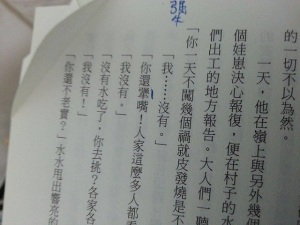
Photo via Wiki Commons
I’ve been eager to start a Chinese version of cryptic crosswords for some time, but it’s a pretty challenging feat.
There is already a tradition of the Chinese character riddle or 字謎.
Examples of this kind of riddle, taken from this helpful site are as below:
1. 真丟人 (The solution and an explanation follows in white, highlight it to reveal) You take the 「人」shaped two strokes off the bottom of 真 to get 直 which is the solution.
2. 見人就笑 (The solution and an explanation follows in white, highlight it to reveal) This is where the algebra component of 字謎 comes in. 人+ x=笑 hence 笑-人=x hence x=竺
3. 千古恨 (The solution and an explanation follows in white, highlight it to reveal) This references a popular saying taken from 《隋唐演義》 which goes 一失足成千古恨 (one step out of place can spawn hatred for a thousand years), here it means you combine 失 and 足 to get the character you want, 跌
4. 禮義廉恥 (The solution and an explanation follows in white, highlight it to reveal) These are the four social bonds 四維: propriety, justice, integrity and honor, if you were to put these into one character, 四 can be put on top and 維 put on bottom to make 羅.
5. 二小姐 (The solution and an explanation follows in white, highlight it to reveal) Another word for secondary is 次 and 小姐 indicates a woman, 次 and 女 can be combined into one character 姿 meaning posture.
6. 存心不善,有口難言 (The solution and an explanation follows in white, highlight it to reveal) This is algebra again, x + 心 = 不善 and x + 口 = 難言, so we have to think of a character that when it has a heart radical means not good, and when it has a mouth radical means “hard to say”, the solution is 亞, as 惡 means evil (not good), and 啞 means mute, which would make it hard to speak.
7. 寶島姑娘 (The solution and an explanation follows in white, highlight it to reveal) The 寶島 can only be 台灣, specifically the 台 and the 姑娘 is 女, which together make the character 始.
Try some of the clues yourself, or at least try to suss out how you get the answers.
I’ve blacked out the answers in this Google Doc.
I like it a lot better when the solution is hinted at in the clue, and think that it could be extended to longer clues, making a crossword. Unfortunately I lack the programming skills to make it happen.
I tried to make up my own cryptic Chinese clue a while ago, wonder if anyone can guess it.
不善之冷欠古人錢,傳說似反斤?
(答案爲兩個字)
Hint: 不令 is a synonym for 不善






 A錢
A錢 


